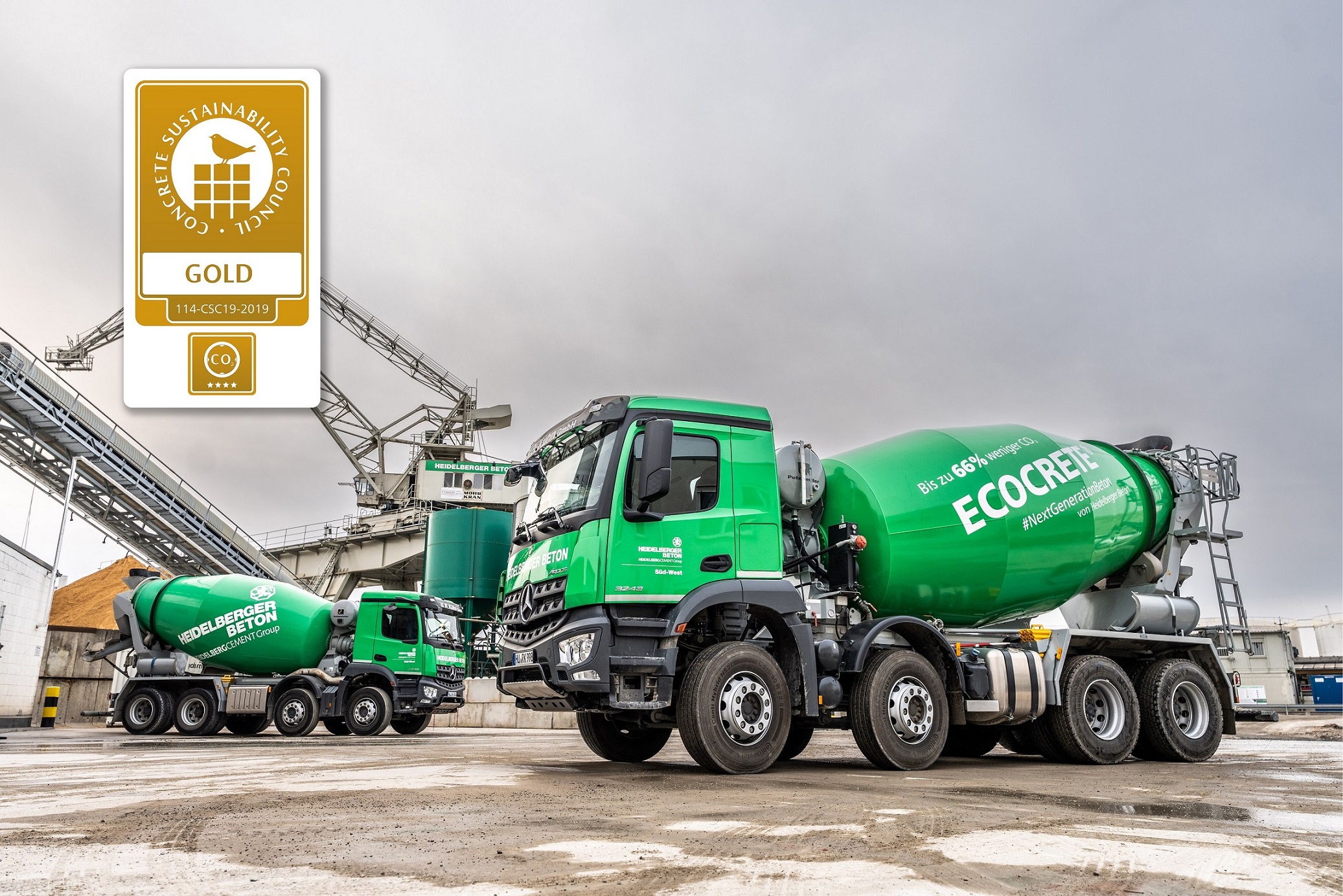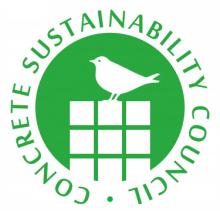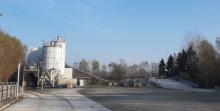
The CSC certification meets the increasing demand from customers for concrete produced under the highest sustainability standards. The CSC certification is recognised by the German Sustainable Building Council (DGNB) for the assessment of sustainable buildings.
The certification discloses the emissions of greenhouse gases (GHG) associated with concrete production. CO2-optimised concrete is divided into four classes: Reduction of GHG emissions [kg CO2 equivalent per m³ concrete] by 30, 40, 50 and 60% compared to the regional reference value. Five Heidelberger Beton plants were able to achieve the highest class (Level 4, > 60%). The company is the only one represented in this class.
"The CO2 module enables concrete suppliers like us to clarify their specific CO2 reduction and make it more tangible for the customer with transparency. The fact that 16 of our plants have been certified is a great team effort," explains Dr. Frank Huber, managing director of Heidelberger Beton.
According to the CSC, the certification requires compliance with various basic requirements and is based on the criteria within the four categories: management, ecology, economy and social aspects of sustainability. With the CSC certification, evaluation points are awarded by fulfilling the various criteria and certificates are issued according to the degree of fulfilment in platinum, gold, silver and bronze.
In addition to this CO2 reduction compared to the reference value, the concrete plant or concrete must meet further requirements for certification. The concrete plant must be at least CSC Silver certified and use at least 75% CSC-certified cement for concrete production. In addition, the concrete plant must be able to demonstrate that the greenhouse gas emissions of its core processes are monitored and provide a documented system of factory production control (quality management).







